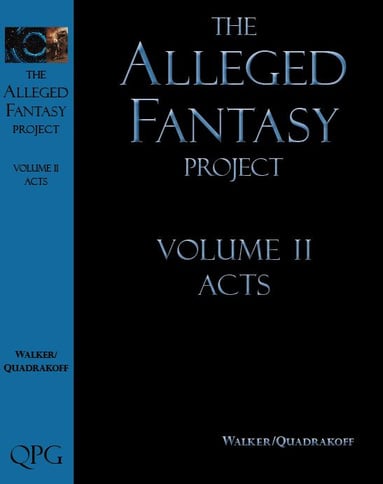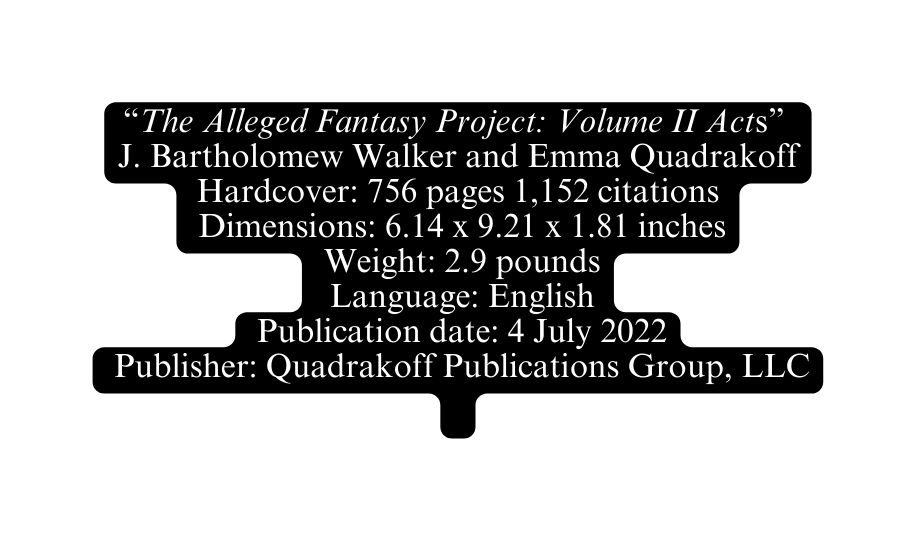
Discover More
NEXT MAN UP
Many claim there is a spiritual war going on. . .
Of course there is. That is precisely why in Genesis 2:1 God called man (Hebrew) tsâbâ’—mistranslated by man as “host.”
“6635 tsâbâ’; or tseba’ah from 6633; a mass of persons (or fig. things), espec. reg. organized for war (an army); by impl. a campaign, lit. or fig. (spec. hardship, worship): - appointed time, (+) army, (+) battle, company, host, service, soldiers, waiting upon, war (-fare).”**
Just prior to this in Genesis 1:28, God instructed man to most notably kâbash and râdâh that which is (Hebrew) ’erets—mistranslated by man as “earth.”
“3533 kâbash; a prim. root; to tread down; hence neg. to disregard; pos. to conquer, subjugate, violate: - bring into bondage, force, keep under, subdue, bring into subjection.”**
“7287 râdâh; a prim. root; to tread down, i.e. subjugate; spec. to crumble off: - (come to, make to) have dominion, prevail against...”**
“776 ’erets; from an unused root prob. mean. to be firm; the earth (at large, or partitively a land)...”**
But what does this mean?
Matthew 12:43-45 (KJV) tell us:
“When the unclean spirit is gone out of a man, he walketh through dry places, seeking rest, and findeth none. Then he saith, I will return into my house from whence I came out; and when he is come, he findeth it empty, swept, and garnished. Then goeth he, and taketh with himself seven other spirits more wicked than himself, and they enter in and dwell there: and the last state of that man is worse than the first. Even so shall it be also unto this wicked generation.”*
Jesus first indicates the “status quo,” after an “unclean spirit” is cast out of a man. Then Jesus indicates that a change in this status quo will be coming; but will not apply to the audience: “Even so shall it be also unto this wicked generation.” Thus this “wicked generation” will be left with only the power to obtain the stated “status quo” result.
John 14:12 (KJV) tells us:
“Verily, verily, I say unto you, He that believeth on me, the works that I do shall he do also; and greater works than these shall he do; because I go unto my Father.”*
This: “greater works,” seems to be a rather odd thing to for the Son of an omnipotent God to say; as it would at first seem that “greater works” would require greater power. If this were so, then an explanation would be required as to precisely how one obtains greater power than omnipotence. However; omnipotent and omnikinetic are not the same thing. There are many who proffer that in this particular context: “greater works” does not mean: “greater works;” but “greater numbers of works.” However there is no Greek word for “numbers” in this “greater works;” but only the Greek:
“3187 mĕizōn; irreg. compar. of 3173; larger (lit. or fig., spec. in age): - elder, greater (-est), more.”**
“2041 ĕrgŏn; from a prim. (but obsol.) ĕrgō (to work); toil (as an effort or occupation); by impl. an act: - deed, doing, labour, work.”**
Luke 10:19 (KJV) tells us:
“Behold, I give unto you power to tread on serpents and scorpions, and over all the power of the enemy: and nothing shall by any means hurt you.”*
There are two KJV English translations as “power” in this verse; but the Greek words translated as such are not the same.
The first “power,” the one that Jesus will be providing man in the future, after He: “go unto my Father;” is the Greek:
“1849 ĕxŏusia; from 1832 (in the sense of ability); privilege, i.e. (subj.) force, capacity, competency, freedom, or (obj.) mastery (concr. magistrate, superhuman, potentate, token of control), delegated influence: - authority, jurisdiction, liberty, power, right, strength.”**
And the second “power,” the one: “of the enemy,” is the Greek:
“1411 dunamis; from 1410; force (lit. or fig.); spec. miraculous power (usually by impl. a miracle itself): - ability, abundance, meaning, might (-ily, -y, -y deed), worker of) miracle (-s), power, strength, violence, mighty (wonderful) work.”**
The difference, is the matter of authority. The Greek dunamis, represents supernatural power, but only as a potential; while ĕxŏusia represents supernatural power plus the authority to use it; i.e.; dunamis plus authority.
Thus the: “greater works” capability of which Jesus spoke, is not the result of an omnipotent God obtaining more power; as that is not possible. This “greater works” is the result of reclaiming the authority to use it; which happened at the little understood post-Calvary “Descension.”
And what will this ĕxŏusia give man the capability to do? The KJV again tells us: “to tread on...;” with the actual Greek word being:
“3961 patĕō; from a der. prob. of 3817 (mean. a “path”); to trample (lit, or fig.): - tread, (down, underfoot).”**
If this New Testament Greek patĕō definition sounds a bit familiar; it is because of what God instructed man to do in Genesis 1:28, in Old Testament Hebrew kâbash and râdâh. But here man is given specific instructions as to the target; unlike in Genesis 1:28 where the target was much more general, that which is firm, via ’erets.
And although these “treading targets” are translated as “serpents and scorpions;” these are actually the Greek:
“3789 ŏphis; prob. from 3700 (through the idea of sharpness of vision); a snake, fig. (as type of sly cunning) an artful malicious person, espec. Satan: - serpent.”**
“4649 skŏpŏs (“scope”); from skĕptŏmai (to peer about [“skeptic”]; perh. akin to 4626 through the idea of concealment; comp. 4629); a watch (sentry or scout), i.e. (by impl.) a goal: - mark.”**
[It should be noted that Strong misattributes “scorpions” to 4651 skŏrpiŏs, rather than 4649 skŏpŏs; hence the mistranslation as “scorpions,” and not concealed entities that: “peer about.”]
What is an ŏphis?
The Greek ŏphis appears in Revelation 12:9, KJV translated as “serpent:”**
“And the great dragon was cast out, that old serpent, called the Devil, and Satan, which deceiveth the whole world: he was cast out into the earth, and his angels were cast out with him.”*
It should be asked how similar this New Testament Greek 3961 patĕo: “to trample (lit, or fig.); is to the Old Testament Hebrew 3533 kâbash: “to tread down,” and 7287 râdâh: “to tread down, i.e. subjugate; spec. to crumble off?”
These Old Testament instructions to man in Genesis 1:28 in-toto, refer to the general (Hebrew) 776 ’erets: “to be firm,” KJV translated as “earth;” while Jesus’ provision of (Greek) 3961 patĕo: “to trample (lit, or fig.)” “power,” refers specifically to that which was: “cast out into the earth, and his angels were cast out with him.”
Thus it would seem that whether or not there is a “spiritual war”going on, would be a question that need not be asked. The real question is whether or not this is even debatable.
[This information was extracted from: “The Alleged Fantasy Project, Volume II Acts”]




“The biggest handicap to winning, is not understanding the enemy.”
—Walker
“LUKE 6:43-45 (KJV) tell us:
“For a good tree bringeth not forth corrupt fruit; neither doth a corrupt tree bring forth good fruit. For every tree is known by his own fruit. For of thorns men do not gather figs, nor of a bramble bush gather they grapes. A good man out of the good treasure of his heart bringeth forth that which is good; and an evil man out of the evil treasure of his heart bringeth forth that which is evil: for of the abundance of the heart.”*
“Since Satan is not omnipotent, omniscient, or omnipresent; it would be both fair and useful to try to determine the level of his abilities, both pre and post Calvary; as well as to try and determine his “true” nature.
“And since much of this information was either never in the Bible, was deleted or “enhanced;” or remains mistranslated for the purpose of obfuscation; looking at the fruits of the: “Satan tree;” i.e.: “his own fruit,” would assist in determining this; i.e.; so that Satan’s: “tree is known.”
“The purpose of this is in no way to satisfy idle curiosity; or to make friends, in the usual: “You’ve got to get to know him.” Rather, the purpose of this is to aid in carefully and precisely designing that very weaponry which would be most effective in causing the maximum amount of irreparable and irreversible harm to him and his minions, his ability to act, or both; and aid in his ultimate destruction. And to be clear, this includes offensive actions, and not merely the “common understood” defensive measures. This must be stated clearly here, so that there is no chance of misunderstanding the motives.
“An analysis of the proper or “quasi-proper” names given to the enemy that are contained in the Scriptures—here the names that were given to the enemy by others; should be quite revealing with regard to the enemy’s “fruit.”
“And knowing this “fruit,” should be quite revealing with regard to knowing the “tree.”
“And here this “tree,” is that which man has been instructed by God to defeat. Thus; knowing the actual nature of the enemy, constitutes: “actionable intelligence,” in this regard.
“There are many ways this analysis could be undertaken with respect to the order of these names; such as: order of appearances, order of occurrences, etc. However; it seems that the simplest and most unbiased way, would be to simply present these in alphabetical order.
“Thus Abaddon and Apollyon would be the first. However as soon as this is begun, another very serious matter arises. . .
“This matter will be addressed in the very next chapter.
“Here are the first two names (in alphabetical order):
“Abaddon and Apollyon—
“Revelation 9:11 (KJV) tells us:
“And they had a king over them,
which is the angel of the bottomless pit
, whose name in the Hebrew tongue is Abaddon,
but in the Greek tongue hath his name Apollyon.”*
“This actual Hebrew word “Abaddon” is listed in Strong’s Greek, and is actually the Greek:
“3 Abaddōn; of Heb. Or. [11]; a destroying angel: - Abaddon.”**
“This Greek word, (proper noun) Abaddōn, translated into English as Abaddon; appears only once in the entire King James Version of the Bible; here in Revelation 9:11.**
“The referenced Hebrew roots of “Abaddōn” are:
“11 ‘ăbaddôwn; intens. from 6; abstr. a perishing; concr. Hades: - destruction.”**
“6 ‘ăbad; a prim. root; prop. to wander away, i.e. lose oneself; by impl. to perish (caus. destroy) : - break, destroy (-uction), + not escape, fail, lose, (cause to, make) perish, spend, x and surely, take, be undone, x utterly, be void of, have no way to flee.”**
“The actual Greek word translated into the English “Apollyon” is:
“623 Apŏlluōn; act. part. of 622; a destroyer (i.e. Satan); - Apollyon.”**
“This Greek word Apŏlluōn, translated into English as Apollyon; also appears only once in the entire King James Version of the Bible; here in Revelation 9:11.**
“The purported Greek root of “Apŏlluōn” is:
“622 apŏllumi; from 575 and the base of 3639; to destroy fully (reflex. to perish or lose), lit. or fig.: - destroy, die, lose, mar, perish.”**
[Excerpt from “The Alleged Fantasy Project Vol. II Acts”
Chapter 5 pp. 107-110]
*King James Bible
**Strong, James. Strong’s Exhaustive Concordance of the Bible © 1890 James Strong, Madison, NJ
This is a new site, more coming shortly. . .
NEXTMANUP.net is sponsored by QPG, LLC “Bible Serious Publications That Make Sense”
Entire content of NEXTMANUP.net is copyrighted.
© 2011 - 2024 Quadrakoff Publications Group, LLC All rights reserved
Distribution with attribution permitted